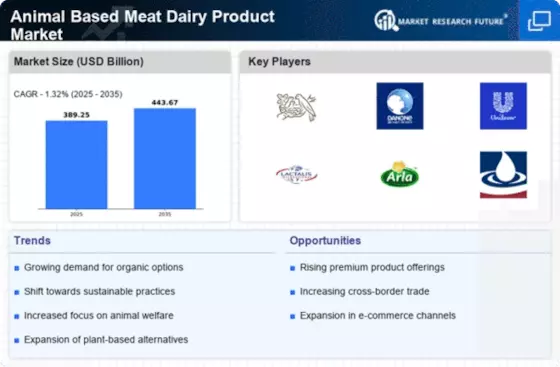Top Industry Leaders in the Turkey Meat Products Market

Strategies Adopted by Turkey Meat Products Key Players
The global market for turkey meat products represents a dynamic sector within the food industry, characterized by various key players and evolving consumer preferences. This landscape is shaped by several factors, including changing dietary trends, health awareness, and technological advancements in meat processing.
Key Players
- Cargill, Incorporated (US)
- Kraft Foods (US)
- Bernard Matthews (UK)
- Hormel Foods, LLC (US)
- Shady Brook Farm (US)
- Copas Traditional Turkeys (UK)
- Conagra Brands, Inc. (US)
- Hannaford Bros. Co., LLC (US)
- Gardein (Canada)
- Land O' Frost (US)
The strategies adopted by these key players often include product innovation, expansion into new markets, mergers and acquisitions, and sustainability initiatives. For instance, companies are increasingly investing in organic and free-range turkey products, catering to health-conscious consumers. Additionally, adopting advanced technologies for processing and packaging has helped companies enhance efficiency and shelf-life, thereby expanding their market presence.
Market Share Analysis
Market share analysis in the turkey meat products industry considers factors such as product diversity, brand loyalty, distribution networks, and pricing strategies. Companies with a wide range of products, including fresh, frozen, and processed turkey, tend to secure a larger market share. Furthermore, an effective supply chain and competitive pricing play crucial roles in determining market dominance.
New and Emerging Companies
Emerging companies in this sector are often characterized by their niche focus and innovative approaches. Brands like Diestel Turkey Ranch and Mary's Free Range Turkeys are gaining traction by emphasizing sustainable farming practices and animal welfare. These new players are leveraging consumer trends towards ethical and environmentally friendly products to carve out their market space.
Industry News and Current Companies
Recent industry news has highlighted strategic partnerships, expansions, and product launches. Companies are increasingly engaging in partnerships for sustainable sourcing and reducing their carbon footprint. Furthermore, there's a growing trend in plant-based turkey alternatives, with current companies investing in or collaborating with plant-based meat producers to diversify their portfolios.
Investment Trends
Investment trends in the turkey meat products market have been leaning towards technological advancements in meat processing, supply chain optimization, and sustainable practices. Venture capital and private equity investments are notably supporting startups focusing on innovative and sustainable meat production methods. Additionally, established players are investing in automation to improve efficiency and reduce labor costs.
Competitive Scenario
The overall competitive scenario in the turkey meat products market is intense, with companies constantly striving for innovation and market expansion. The competition is not just among traditional meat producers but also with companies offering meat alternatives. As such, maintaining product quality, brand reputation, and adhering to regulatory standards are crucial for companies to stay competitive.
Recent Development
The turkey meat products market witnessed several significant developments. Key players expanded their product lines to include more health-focused and convenience-oriented products, responding to the growing consumer demand for healthier and easier-to-prepare food options. There was a notable increase in the adoption of advanced technologies like blockchain for traceability and artificial intelligence for supply chain management, enhancing transparency and efficiency in the market.
Moreover, sustainability emerged as a major theme, with several companies announcing initiatives to reduce their environmental impact. This includes investments in renewable energy sources, waste reduction programs, and more ethical sourcing practices. The market also saw a rise in collaborations between traditional turkey meat producers and plant-based protein companies, reflecting a strategic move to cater to the rising consumer interest in plant-based diets.











